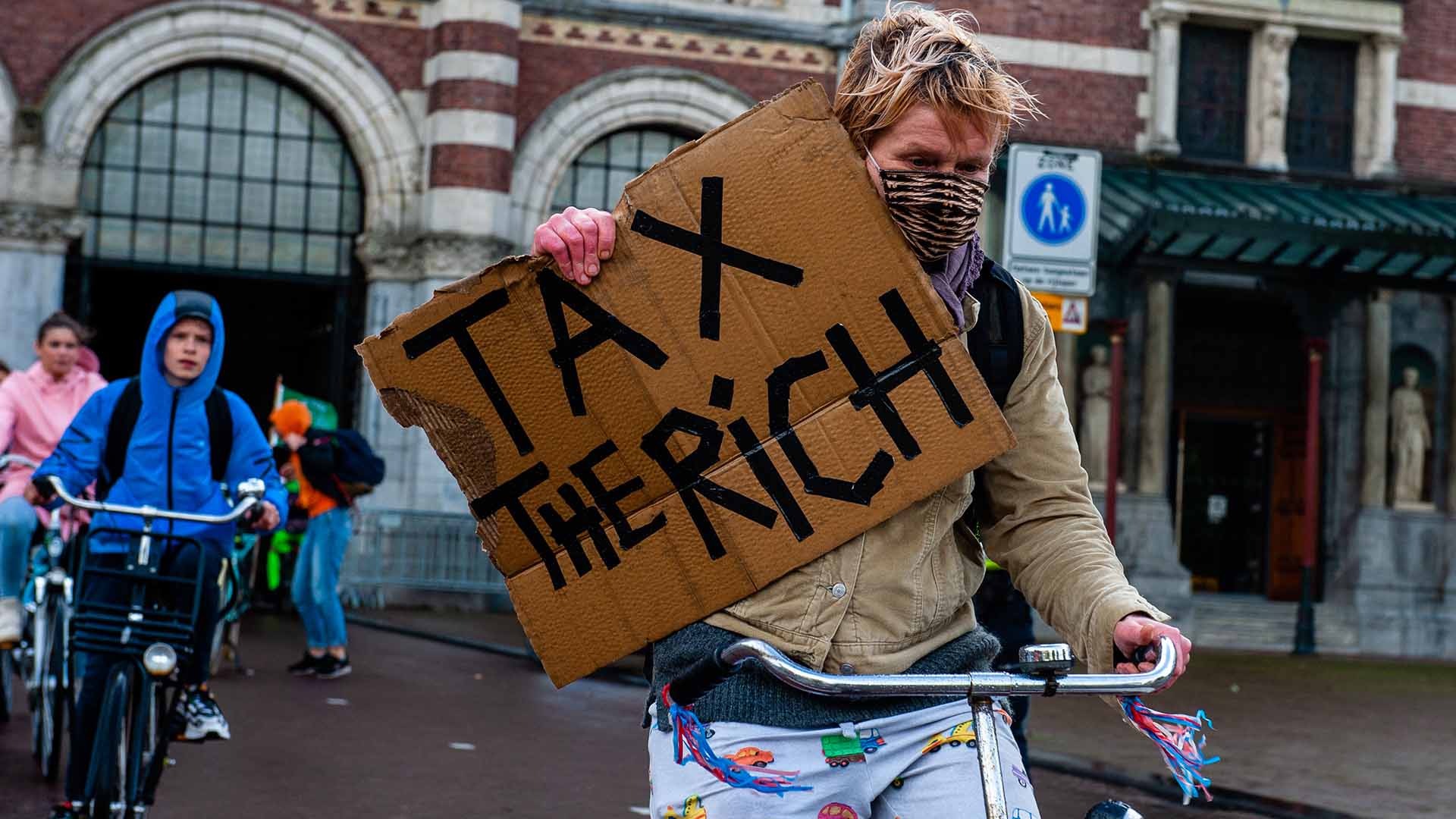The world’s wealthiest countries that help set global tax standards are actually responsible for the majority of corporate tax abuses around the world, a new report has found.
The Tax Justice Network’s 2021 Corporate Tax Haven Index, which ranks the countries “most complicit in helping multinational corporations pay less tax than they are expected to,” pegs six jurisdictions that are part of the Organisation for Economic Cooperation and Development — the British Virgin Islands, the Cayman Islands, Bermuda, the Netherlands, Switzerland and Luxembourg — as the biggest enablers of corporate tax avoidance worldwide.
OECD, an organization made up of high-income countries, collects economic data and uses it to make recommendations on regulatory reforms, corporate governance, and tax policy — not just for its members, but for the entire world.
“To trust the OECD in light of the Index’s findings today is like trusting a pack of wolves to build a fence around your chicken coop,” Dereje Alemayehu, executive coordinator of the Global Alliance for Tax Justice, said in a statement released by TJN Tuesday.
TJN’s State of Tax Justice 2020 analysis found that countries lose $245 billion of tax revenue a year to cross-border tax avoidance by multinational corporations, and the new report attributes 68% of that figure to OECD members and their overseas territories.
TJN also found that the United Arab Emirates climbed to No. 10 in their ranking, in large part due to an infusion of over $200 billion in foreign direct investment — equivalent to more than 50% of the country’s GDP — routed through the Netherlands.
“The world’s richest countries are depriving the rest of the world of $166 billion in corporate tax every year by enabling the biggest multinational corporations to pay less tax than they should,” Liz Nelson, director of tax justice and human rights at TJN, said in a statement.
One issue, according to the report, is that OECD’s own evaluation methods are too lax. While OECD recently released its own report on “professional enablers” who help facilitate their clients’ potential financial crimes, TJN’s analysis says that 98% of corporate tax abuse risks come from countries that OECD has determined do not enable harmful tax practices.
“To get approval from its most powerful member countries, the OECD had to water-down its global tax rules to the point of obsolescence,” Moran Harari, the lead researcher for indices at TJN said in a statement. “Rather than eliminating tax havens, the OECD’s global rules normalised them. Only a UN tax convention, where global rules are determined by democracy not plutocracy, can make tax havens a thing of the past.”
TJN proposes shifting responsibility for corporate tax standards from OECD to the United Nations, a recommendation that comes on the heels of the U.N.’s High-Level Panel on International Financial Accountability, Transparency and Integrity’s report containing over a dozen recommendations for fighting tax abuse. FACTI’s proposed strategies include minimum corporate tax thresholds, increased ownership transparency, and stronger protections for whistleblowers and journalists.
Alex Cobham, the chief executive of TJN, said that the way that tax systems prioritize the desires of corporations and wealthy people over the needs of everyone else “has been made painfully clear by the pandemic” and stressed the importance of understanding the true cost of tax avoidance.
“Our tax systems are our most powerful tools for creating a just society that gives equal weight to the needs of all members of society,” Cobham said in a press release. “We must reprogramme our global tax system to prioritise people’s wellbeing and livelihoods over the desires of those bent on not paying their tax.”



